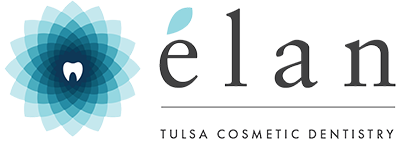The Cause of Your TMJ Can Lead You to the Proper Treatment

Although we often refer to temporomandibular joint disorder (TMJ) as if it’s a single condition, it’s really an umbrella term that covers many types of jaw-related problems, some of which are more easily treated than others.
With November being National TMJ Awareness Month, we thought we’d get a jump-start on bringing awareness to this painful condition by helping our patients understand why it’s so important to understand the cause of their TMJ disorder.
Malocclusion (Bad Bite)
A bad bite can cause TMJ by preventing your jaw from achieving a comfortable position. When your jaw muscles can’t find a relaxing position, they will constantly pull on your jaw, causing muscle tension that results in jaw pain, tooth wear and damage, and, ultimately, damage to the jaw joint.
To find out if a bad bite is the cause of your TMJ, we will use advanced dental technology, a K7 computer, to record your jaw’s proper alignment. If we find your jaw is misaligned in this process, we can determine that as the cause of your TMJ disorder.
When a bad bite is the cause of your TMJ, we will recommend a bite splint that can hold your jaw in the proper position for rest and recovery. Once we’ve determined the ideal position for your jaw, we can talk about achieving permanent results with dental restorations that will fix your bite.
Jaw Trauma or Whiplash
Traumatic force can cause your jaw to become dislocated. Traumatic force can be delivered by an actual blow, or as a result of whiplash, in which your jaw was subjected to a lot of force but didn’t receive an actual blow. A common cause of whiplash is a car accident where the body stops because of your seat belt, and the force of stopping your body travels along the body to the temporomandibular joints, which can become dislocated. Taking x-rays and using our K7 computer will help us render a 3D image of your jaw and determine if previous jaw trauma or whiplash is the cause of your TMJ disorder.
Overworked Jaw
Our jaws aren’t designed to work like they used to. Although our primitive ancestors spent about half of their day eating, cooking has reduced that time down dramatically, so that we only spend about 5% of our day chewing. Over the two million years since cooking began, the shape and structure of our jaw have changed, so it’s no longer suited to spending all day chewing on tough material.
If you spend a lot of your day chewing on gum or non-food objects, or if you switch to a raw food vegetarian diet, you might find that your jaw becomes stressed out, which can lead to jaw joint damage, including dislocation of the jaw joint. In its early stages, this can be treated with simple rest and changing your habits. As it develops, it may require surgery.
Bruxism
Bruxism is a special kind of overworked jaw caused by involuntary clenching and grinding of your teeth. Bruxism can occur while you’re awake, or it can occur during sleep. It may be related to stress, could be caused by a prescription, or it may be secondary to a bad bite or overworked jaw. Bruxism can quickly cause damage to your teeth and jaw joints.
Bruxism-related TMJ is treated with a bite splint that protects your teeth and jaw, and, hopefully, by identifying and addressing the cause.
Arthritis
Arthritis can affect your jaw joint just like it affects other joints in the body. Osteoarthritis is the “normal” type of arthritis that occurs with age and wear on the jaw joint. The cushioning disk in the jaw can break down, leading the bones to grind, causing significant damage.
Rheumatoid arthritis can strike people of any age. It’s an autoimmune disorder in which your body’s immune system attacks the tissue of your joints. It can also lead to the breakdown of the cushioning disk and grinding bone.
When possible, treatment of arthritis is used to prevent damage. Often, though, surgical treatment is required for this type of TMJ.
Other TMJ Treatment Options
When it comes to TMJ, there is a wide variety of treatment options. Aside from the options available in our dental office, you can also consider different treatment options like:
- Eating soft food
- Ice and Heat
- Stress management
- Relaxation techniques
- Taking over-the-counter pain medicine.
- Botox
- Cognitive-Behavioral Therapy
- Acupuncture
- Physical therapy
- Medical marijuana (where legal)
The problem with some of these other treatments is that they’re simply a bandaid to cover up symptoms. The only way to achieve long-term relief is with an actual treatment plan that addresses the cause of your disorder.
The Right TMJ Treatment in Tulsa For You
We work hard to identify the true cause of your TMJ and get appropriate treatment for you. To learn what’s behind your TMJ and how best to treat it, please call (918) 528-3330 for an appointment with a Tulsa TMJ dentist

élan Tulsa Cosmetic Dentistry
10031 S Yale Ave #104
Tulsa, OK 74137

